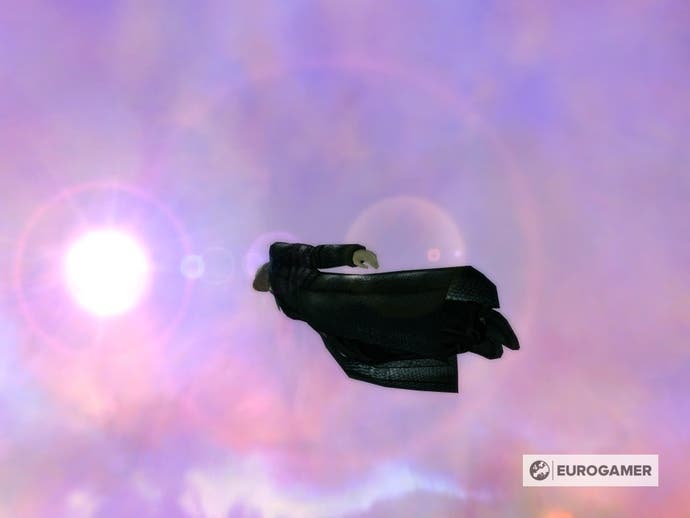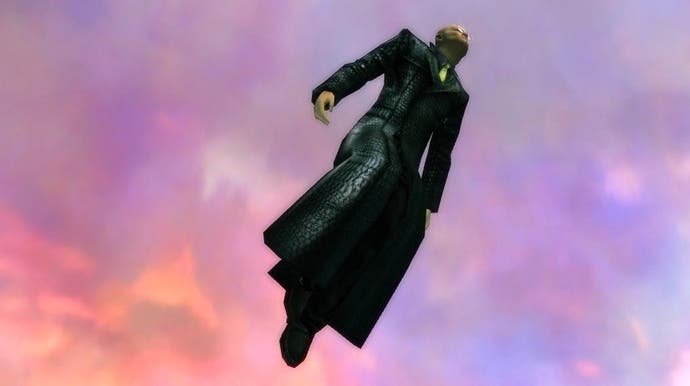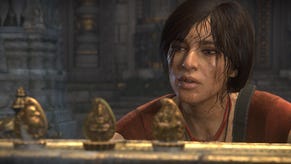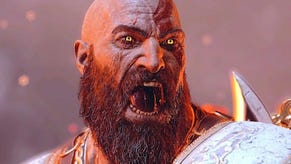The One: meeting the solo developer who took The Matrix Online to the end
"I don't think we ever worried about whether our game was canon."
I was taken aback watching The Matrix 4 trailer earlier this month, because it's been years since anything Matrix was exciting, and I'd forgotten how much it means to me. I really love that film (I am pretending there is only one of course). And seeing Keanu as Neo again sent shivers down my spine. And that moment where he and Carrie-Anne Moss meet in the trailer? Ooh ooh ooh.
But where was Laurence Fishburne, where was Morpheus? Or was that Morpheus? No one seemed to be sure, though it didn't take long for actor Yahya Abdul-Mateen II to clarify that he is Morpheus in the new film. For some reason, Fisburne wasn't invited to the reunion, but let's not dwell on that. Because for one moment, amid all the speculation, something brilliant happened: people reached for an explanation from a game. And it was a game we hadn't heard about for years: The Matrix Online.
It resurfaced because it offered, potentially, context about what was going on in the enigmatic Matrix 4 trailer. This is because The Matrix Online occupies a fascinating space within The Matrix universe. Here was a piece of entertainment entrusted by the Matrix creators, the Wachowskis, to continue the Matrix story after the three films ended.
This wasn't particularly controversial at the time because The Matrix, as far as most people were concerned - maybe even as far as the Wachowskis were concerned - was done. The pressure was off. But it matters now, doesn't it, because The Matrix is back, and how many of you know what happened after Neo sacrificed himself to the machines?
I bet you don't even know Morpheus is dead, do you?
Don't worry, I'll give you a moment.
It's true. Morpheus was alive at the end of the films, but a few months into The Matrix Online, he was killed - with the Wachowskis' blessing. What does that mean for the new films? Could this be the reason Morpheus has returned from the dead looking slightly different to before? And could there be something in the game which explains why Neo and Trinity are also back from the dead?
I wanted to find out more, and who better to tell me than the person, who, by the end of The Matrix Online's operation, was pretty much running the game by himself? He'd create the storylines, implement them, and then bring them to life, embodying the characters involved in them. He'd play as the Agents, wielding fancy dev tools to enhance their abilities; he'd play as named characters from the films, like the Merovingian - remember him?; he'd even create powerful new characters of his own like the Apothecary, a character so deadly she could one-hit people with powerful kill codes.
He is our Architect, and his name is Ben Chamberlain. "I was the last full-time developer on the game."
Chamberlain was at developer Monolith Productions a few years before The Matrix Online came along, and it was a huge deal for the studio. "It was by far the biggest project and budget we'd had," he tells me. And it was shrouded in secrecy, totally "hush-hush", as he puts it. That's because this was 2002-ish, and back then, there was only one The Matrix film. The final two wouldn't come out until 2003.
But because the Wachowskis were involved with the game, and because they wanted it to continue The Matrix story, Monolith had to know what would happen in the new films. This meant they actually had copies of the scripts for them. Imagine that, back then, amid all the hype and anticipation. That was a big deal. "The scripts for the second and third movies were kept under strict lock and key for eyes-only viewing by top people when absolutely necessary," Chamberlain says.
It also meant the Wachowskis would very occasionally pop into the office, and on one occasion, in a small room alongside a few other people, Chamberlain got to meet them. "They were very gracious about it," he says with a smile.
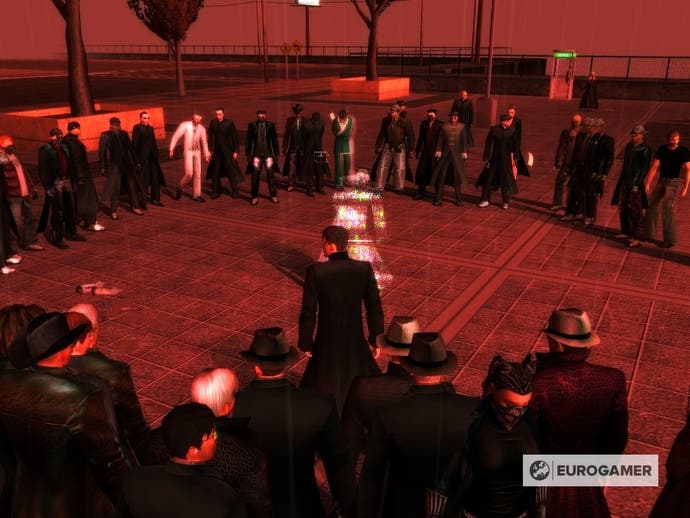
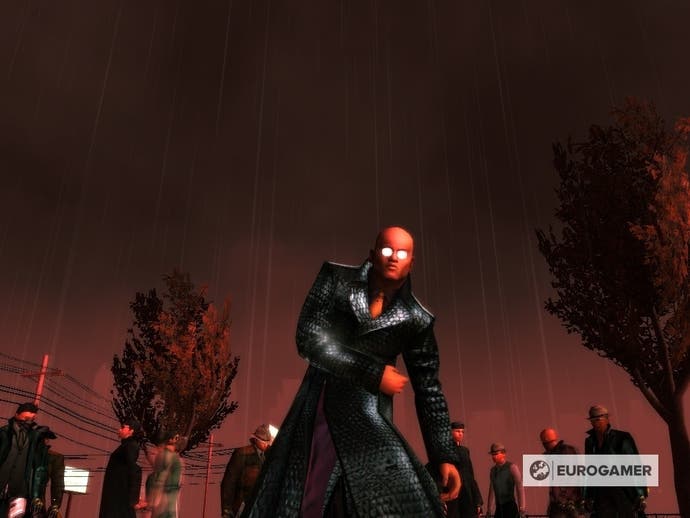
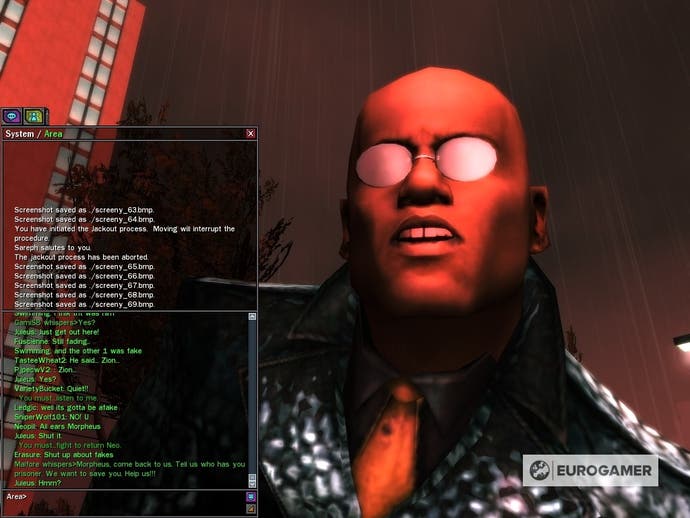
"As far as I know," he goes on, "their involvement was approving the creation of an MMO based on the property, to begin, story-wise, after the end of the third movie, and handing off creative responsibility for the game's story to a hand-picked writer who would be the one to work with the team on an ongoing basis."
That "hand-picked writer" was Paul Chadwick, creator of the Concrete series of comics, and he was apparently given full creative control over the story. "They wanted him, so the PR had it, to blow it up, tear it down, rebuild it, or whatever he wanted. To make it completely his.
"Paul actually did run things by the Wachowskis if it was something that changed an established piece of the fiction in an unexpected way," Chamberlain adds. "I found this out years later when he ran something I wanted to do by them, and I had the thrill of seeing their reply to him about a story proposal of mine. They wrote briefly, centered, and in all-caps, Hollywood screenplay style!"
Paul Chadwick did what he was told: he blew up, tore down and rebuilt. And nothing displayed this better than his audacious plot to kill Morpheus. The story briefly goes that Morpheus wanted Neo's body back after he sacrificed himself to the Machines, but the Machines, those bolt-heads, refused. Morpheus wasn't happy, and this manifested in the game with him literally "running around the city, screaming about Neo's 'body' and setting off 'code bombs'", Chamberlain says.
I pick up a bit of snark in Chamberlain's words as he tells me this, like he doesn't approve of how it all went down. And I think it's because he doesn't, not only because he wasn't involved in designing it, but because another team, the reckless Live Events Team, played Morpheus during it.
This Live Events Team had everything: a nice part of the office, new computers, their own community manager, their own in-game newsletter. They were an expensive, around-the-clock roleplay team bought in at launch to paper over a perceived lack of content in the game. And they seemed to do what they liked, hence Morpheus "screaming", all while Chamberlain's poorly equipped mission design team cringed in the background. "But staffing a large 24-hour team of live game actors must have been expensive, and they were pretty much the first thing to get the chop," says Chamberlain.
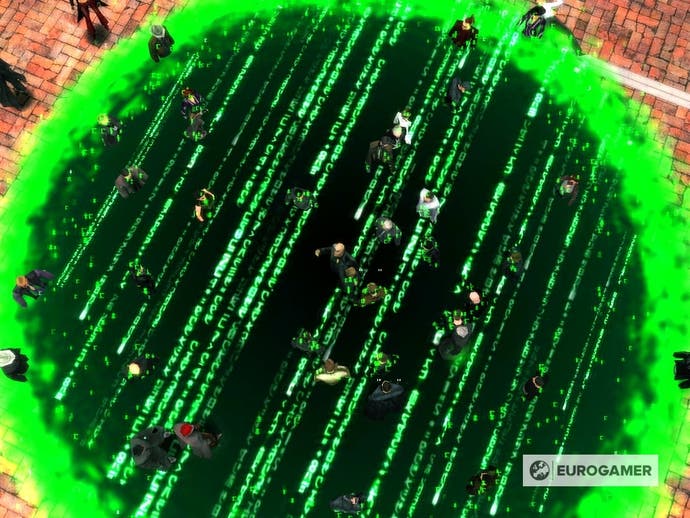
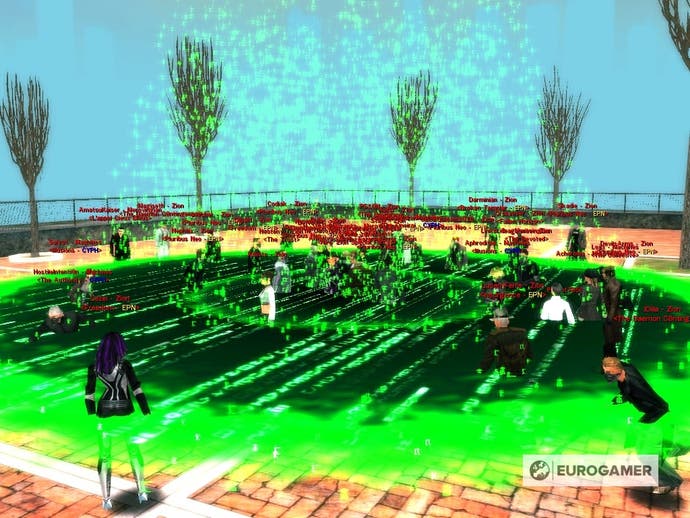
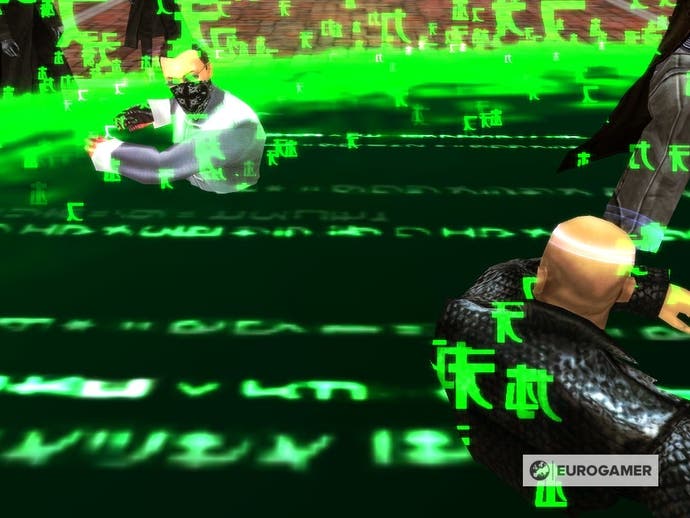
Morpheus' antics caught the attention of the Machines, who weren't happy, so they sent an assassin character made of, um, flies, according to Chamberlain, to kill him. And to everyone's surprise, the assassin succeeded. There's an infamous video of Morpheus' final moments you can find in this article. It shows Morpheus walking down an alley when all of a sudden, the assassin pops out of a window like a whack-a-mole and shoots Morpheus dead. And just like that, one of the most beloved Matrix characters was gone.
"It wasn't something I would have done," says Chamberlain, "at least not so quickly. Generally I regard it as wasteful to kill off major characters, unless maybe you've given it a ton of build-up and absolutely milked it for every single drop of drama you could possibly squeeze out of that character.
"Much more could have been done with Morpheus. We only had a few characters as well-known as him. Heck, we only had so many characters with their own unique character models!
"However, killing him did start things off with a bang, and it probably got the desired shocked reaction from the players. The story around it - the assassin character made of flies - might have been a little too new and outlandish to imbue the event with the utmost gravitas in the eyes of skeptics, but it's hard to know how much that actually mattered.
"I don't think I ever heard from players that it caused lots of players to quit or anything, although I certainly knew players over the years who really idolised Morpheus and definitely missed him as a presence in the game."
Chamberlain would actually go on to bring Morpheus back as "a confused AI simulacra, pieced together from his surviving digital impressions", so he did manage to get a bit of drama from him in the end. "I don't remember if I ever heard anything from Paul [Chadwick] [...] about what the Wachowskis might have thought about it," he adds. "Paul is on Twitter, you could try asking him about it!"
I did, incidentally, and he didn't get back to me. Perhaps he's still fuming.
Morpheus died, then, but the big question is was it canon? Is it canon? That's what this whole thing hinges on. But isn't that why the Wachowskis were involved in the first place, to make this canon? Isn't that why they hand-picked a writer to oversee it? It has to be canon, it has to be!
But it might not be.
"'Canon' isn't actually something that got talked about at all," Chamberlain tells me. "It was just pretty clear to everyone that the movies were canon, and the Wachowski-written Animatrix shorts - we saw preliminary, animatic versions of them - were canon. And I guess technically the Wachowski-directed extra scenes filmed for Enter the Matrix were canon, but that game didn't come out until 2003, and the scenes weren't screened for us, so most of the team wasn't particularly aware of them.
"I don't think we ever worried about whether our game was canon. I don't think anyone who worked on it ever thought that anything we were doing would be regarded as canonical in the same way that the movies were. That would just have seemed pretty absurd. It was clearly a different thing with different authors, a different audience, purpose, mechanics - everything."
"No developer had any illusion anything we did would ever be known or taken to heart by the larger public; that's just not the way game stories were regarded."
I suppose no one ever expected a Matrix 4 to come along to stir everything back up, did they? Nevertheless it has, and now the question of 'what is going on in The Matrix 4?' is all anyone seems to talk about. Why, for instance, is Neo in the bath with a rubber duck on his head?
I decide to use Chamberlain's almost unrivalled knowledge of The Matrix to try and find out. First, here's what happened since the end of The Matrix Revolutions, the third film, as according to The Matrix Online.
Deep breath: "After attacks by power-hungry militaristic Exile programs (led by someone called the General), then super-hacked humans (a Zion officer named Anome and his Unlimit operatives), and a shadow war between Zion and Machine-aligned sub-organisations (The Kid from the movies, leading E Pluribus Neo, and the enigmatic Cryptos, head of the Cypherites), open war between Zion and the Machines, with machinations by the Merovingian and the Oracle, eventually broke out again.
"But it was interrupted by a new, more powerful group [called] the Oligarchs: humans who had had a certain amount of control over the Machines prior to the Machine takeover [...] who let the Machines enslave the rest of humanity as long as the Oligarchs were left to their own devices. But now, in MXO, they wanted a slice of the action in the Matrix. And what appeared to be Trinity in programmatic form was manifesting in the simulation..."
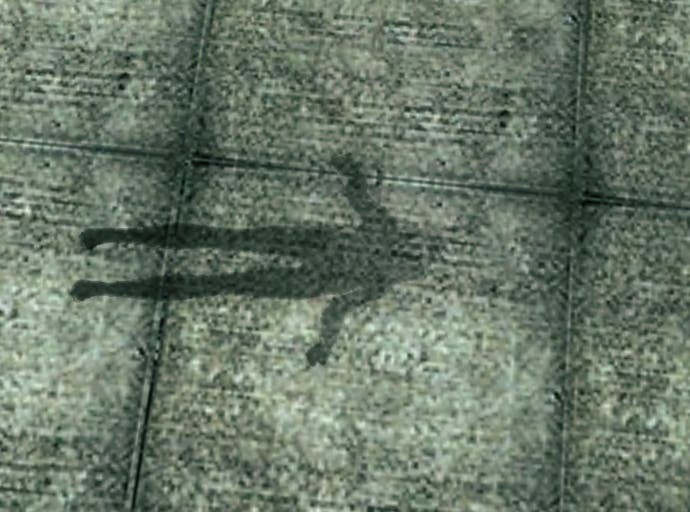
And that's where we are today. So Trinity came back in the game as well. That was one of Chamberlain's storylines. He brought her back to try and flesh out the role of the Oracle, who you'll be familiar with from the films - "don't worry about the vase" - and to mull on the creation and design of the Matrix itself. And to posit that Neo and Trinity were programs all along, "designed by the Oracle as perfect interfaces between man and machine, making possible the necessary periodic reboots of the intentionally flawed Matrix simulation". Goodness me!
"Trinity as a 'biological interface program' also fed into my largest overarching theme, which was basically that, human or machine, aren't we all just sentient beings, equally worthy - or unworthy, as our own actions may dictate - of life and respect?"
Bringing Neo back was a trickier proposition. To put him in the game would have distracted from everything else. "He was so clearly the main hero in the films that brought back in any form, Neo would simply be 'the good guy' and almost everyone would gravitate to him, and we'd lose much of the complexity of our carefully balanced positions." In the game, you were supposed to be the hero, not him again. So in Chamberlain's eyes, a holographic memorial of him, tucked away in the Matrix, was enough.
Some interesting ideas, no? I wonder if any will manifest in The Matrix 4 in some way. Will writer and director Lana Wachowski have noted any of the game's goings-on? It's an exciting prospect isn't it?
Chamberlain, however, is as in the dark as the rest of us. He watched the Matrix 4 trailer like everyone else, puzzling over what it might mean. "I was surprised that it was pretty much a recapitulation of the first movie," he says. "But I have to guess that that's just what they want us to think for now, and there's going to be a major twist or two in there that will turn everything on its head in a different way.
"The players threw me a going-away party in the game which was incredibly touching"
"It will probably involve the explanation for just how the Matrix got apparently 'reset' or whatever, because at the end of the third movie, Neo and Trinity were supposedly dead, and humans who wanted to be freed from the Matrix were supposedly going to be freed by the Machines and not attacked by them in the real world - that was the deal Neo had struck with the Architect. From what we see in this first Matrix 4 trailer, that all seems to have been wiped out, with a time-jump too since Neo and Trinity are older. So... who knows?"
Chamberlain would go on to work on The Matrix Online until 2009. Paul Chadwick's plotlines all wrapped up in March 2007, and after that, Chamberlain was the sole remaining designer.
"I had some forewarning that a shutdown was impending, but until I was told the final date I was able to sort of pretend it wasn't real and just keep working away," he says. "I'd thought I'd be able to keep going up until the actual shutdown, but once I was told the date - The Matrix Online shut down at the end of July, 2009 - I found that whatever inspiration had kept me going all that time vanished, and I had to give notice.
"The players threw me a going-away party in the game which was incredibly touching, and I still get a bit misty thinking about it. They'd led me on some merry chases in that simulation," he adds with a smile.
After that, he found a passion for drawing, and together with his ability to write, it culminated in the creation of the Supermassive Black Hole A* webcomic, which you can support through Patreon.
"I can't say I miss it," he says as our chat comes to an end, "because there were lots of things that were out of my control, and far from ideal, and it was a brutal amount of work. But it's fun to reminisce about the good times," he says. And I encourage you to do the same if you ever spent any time with the game. I'm sure he'd appreciate it.
Will any trace of The Matrix Online be visible in The Matrix 4? We will have to wait and see. But for now, and forever more, it remains a reminder of the heady crossover ambition we sometimes see in games. And though these projects might not work out, they remain remnants of an industry which pushes boundaries, and the memory of them lives long in the minds of those who touched them. So Ben Chamberlain, and The Matrix Online, I salute you. You made games a bit more interesting. And for that, I thank you.
